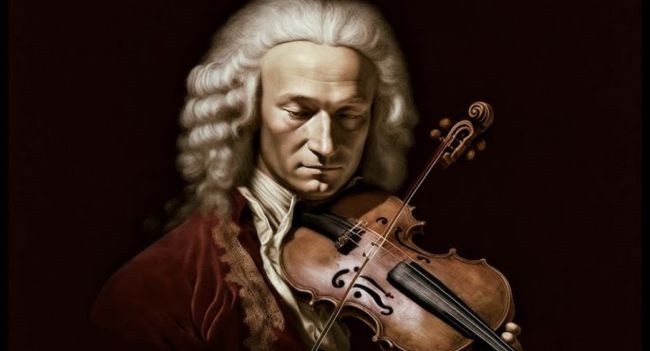If music were a numbers game, this composer would be unquestionably the best. He composed a lot of music.
In fact, people who aren’t fans of his describe his music as being “cookie-cutter” or “samey.” There’s even the joke that he composed just one concerto, 500 times!
But I want to make a case for Vivaldi as being much more than a purveyor of fluffy concertos. There’s a lot to this composer that is easily missed to our modern ears.
There are two important pieces of information about Vivaldi, which I feel you should know.
Firstly, he suffered from poor health his whole life — we think it was probably chronic asthma. In fact it was touch and go when he was a baby, so much so that when he pulled through, his mother pledged that he would become a priest, and he did. He’s known as the Red Priest, on account of his hair, which was, well, red.
Secondly, Vivaldi lived in an age when music was written either for the Church, or for noblemen and royalty. But Vivaldi, he was teacher, and a great number of his compositions were for his students in an orphanage. Doesn’t that change how you feel about him?
As a priest, Vivaldi wrote many religious works, and during his life, he was best known as a composer of operas, not instrumental works. But his real legacy are his 500 or so instrumental concertos, and maybe it’s Vivaldi’s prowess as an opera composer that is the secret to how affecting they are. He brought drama, excitement and a sense of story to them. They’re dazzling to listen to and performers relish them. They were a great influence on music all over Europe. Bach, for one, was a massive fan.
These concertos champion all sorts of instruments. For example, Vivaldi was the first composer to treat the cello as a serious solo instrument. But the vast majority are for his own instrument, the violin. They demonstrate new exciting sounds. And they evoke the whole compass of existence, from the beauty of nature to great Moghuls from the East.
It’s a set of four concertos that he wrote whilst living in Mantua that really captured the ears of the world — the concertos that became known as The Four Seasons. As you listen, hearing insects buzzing, crashing storms, peasant songs and frozen winter fields, consider this: Vivaldi was the first composer to use music to depict the world around us in such vivid detail.
But all of Vivaldi’s concertos, they have such a consistent energy, brightness, vitality. Such brilliance from the Red Priest.
